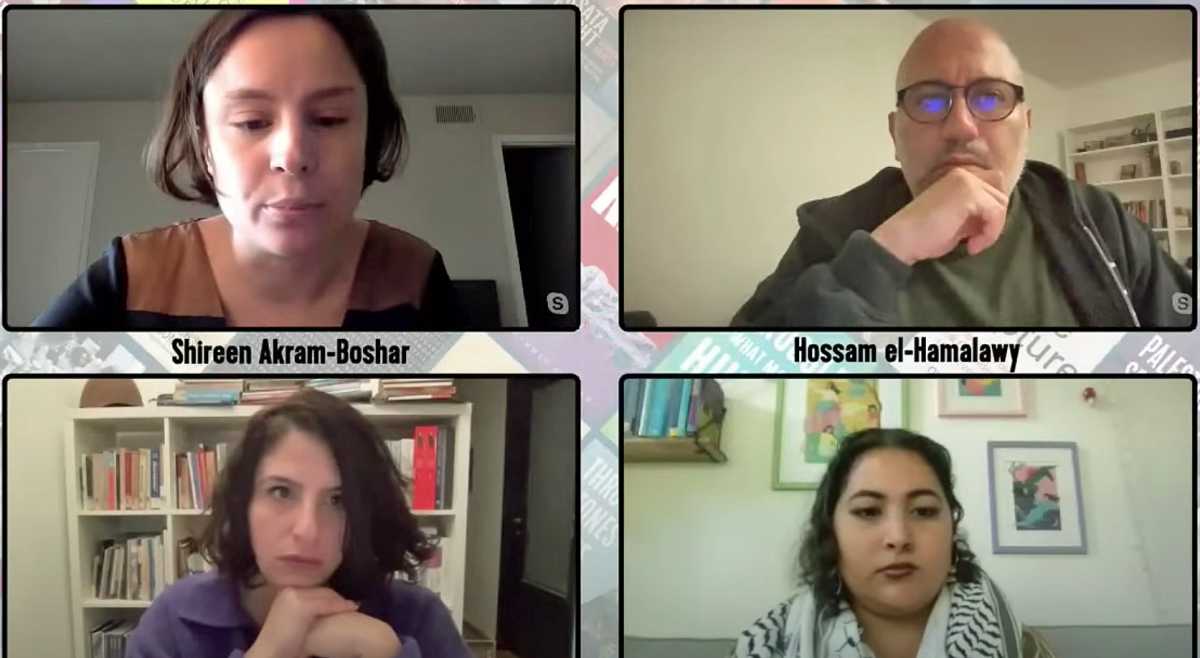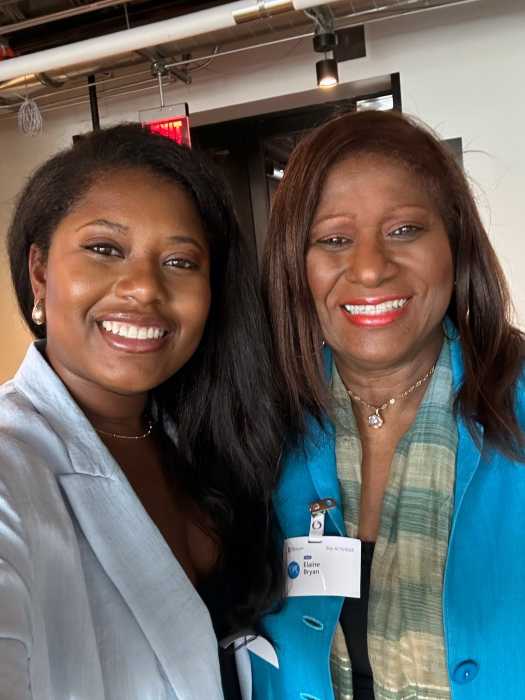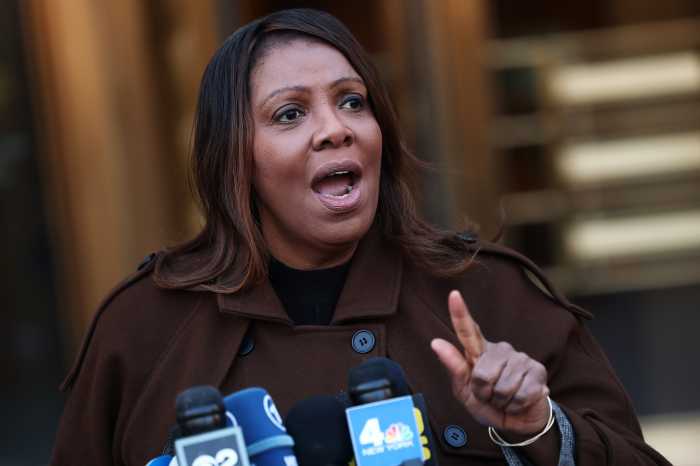Middle Eastern scholars and activists discussed liberation for Palestine in the war between Israel and Gaza, and its connections to liberation across the Middle East/North Africa region, in a virtual conversation hosted by Haymarket Books on Nov. 28, moderated by Shireen Akram-Boshar.
Speakers in the conversation were Hossam el-Hamalawy, Soheir Asaad, and Dr. Banah Ghadbian (they/them). el-Hamalawy is Egyptian journalist and scholar-activist, currently based in Germany. Asaad is Palestinian feminist, political organizer and human rights advocate. She received a Master’s degree in international human rights law from the University of Notre Dame (US). Ghadbian holds a Phd in Ethnic Studies from the University of California, San Diego.
el-Hamalawy began the conversation by discussing how he and his fellow activists, the Egyptian Revolutionary Socialists (ERS), have helped organize protests in support of Palestine.
“Usually the protest on an Egyptian campus would start with Pro Palestine slogans. Then the focus would slightly change in a few minutes into anti-US and anti-Zionist slogans. Then a few minutes later, the focus would start to change into: ‘Why isn’t our government doing enough to help the Palestinians?’,” he said.
el-Hamalawy added that the focus of the protest would keep changing until it became about police brutality and the nature of the regime.
Ghadbian then shared reasons why Syria and Palestine are connected in struggles for liberation.
“First, a dual critique looks like understanding that Israel occupies Syria in the Golan
Heights,” they said. According to Ghadbian, Israel has been actively occupying Syria since 1967, with the Syrian revolution beginning in March 2011, and Palestinians joining Syrians for a march to the Golan border in May and June 2011.
“The second thing is understanding how the Syrian regime, the Assad regime targets
Palestinians while using pro Palestine rhetoric to justify its legitimacy in Syria,” they added. Ghadbian shared examples including the siege of Yarmouk, a Palestinian refugee camp in Syria.
“The third is to understand the kinds of gendered violence the colonial state and the authoritarian State use on Palestinian and Syrian women,” they continued. Ghadbian stated that the women would be raped and sexually assaulted, and if they were pregnant, their babies would be raped as well.
The fourth is understanding how prisons, (the carceral state), are central to both of these struggles. Ghadbian mentions Tal Al-Mallouhi, a Syrian student, poet and blogger who was detained by the Syrian government in 2009 for writing poems about Palestine.
“I don’t think we can start the analysis of the genocide in Gaza by only understanding the over 75 years of Israeli colonization and oppression in a way that is detached from Israel being a project of colonialism in Palestine,” Asaad said.
“The region as a whole is a European and a US project that is aiming not only at oppressing Palestinians, at taking their lands, displacing them, turning us into refugees and fragmenting our community, but it’s also aiming at controlling the whole region, controlling our resources our freedoms and our livelihoods all over the region,” she added.


























